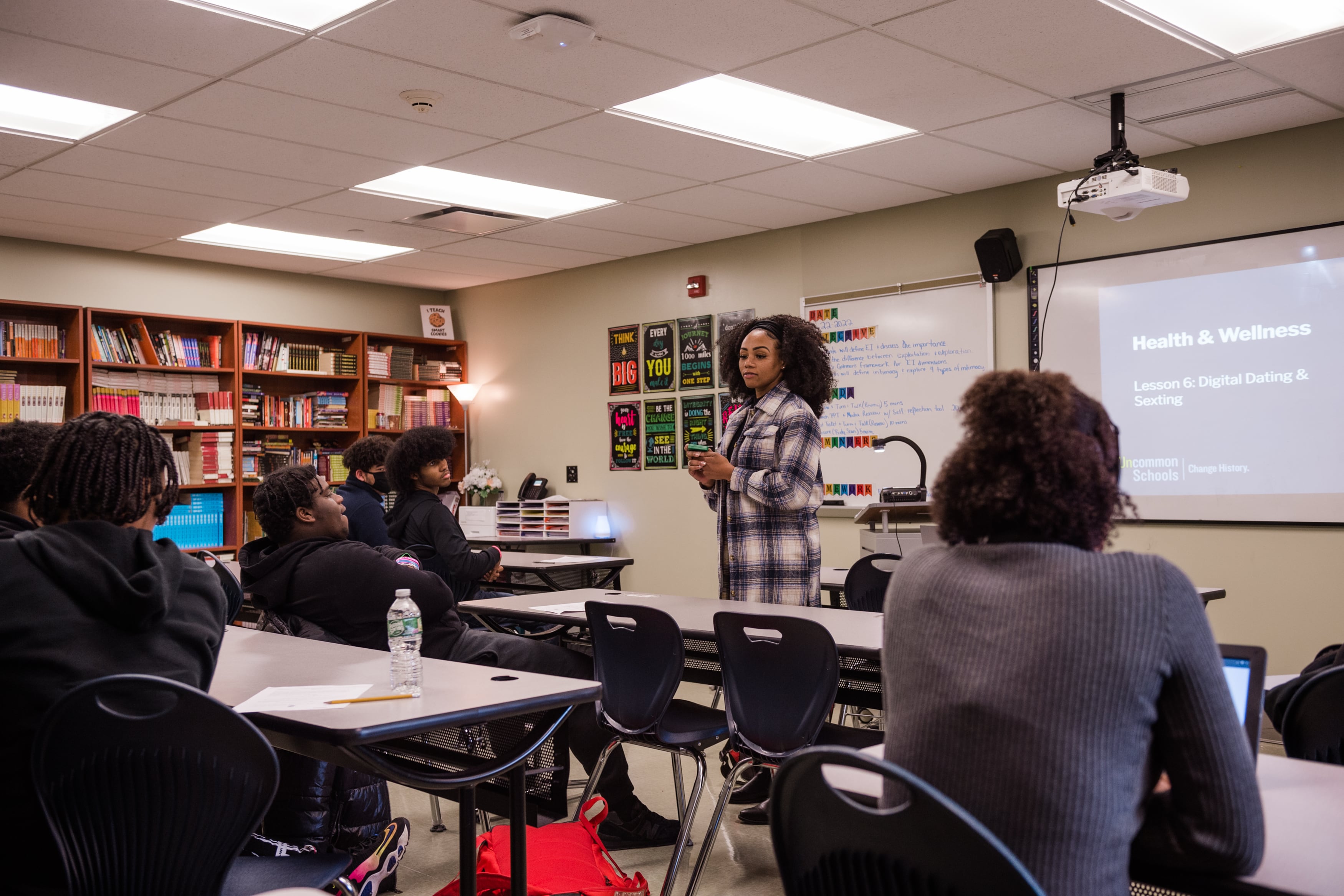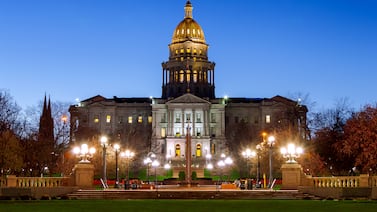Sign up for Chalkbeat Newark’s free newsletter to keep up with the city’s public school system.
In the five-year legal battle to desegregate New Jersey public schools, on Friday a Superior Court judge denied the state’s defense that it should not be held responsible for the “unlawful, persistent, and pervasive” segregation in its educational system.
While acknowledging that state public schools are segregated by race, and that the state has the constitutional power to take action, Judge Robert Lougy’s decision also found that the activists who made the allegations failed to prove the “entire” school system is segregated “across all districts.”
Students, educators, activists, experts, and community members have been waiting for more than a year and a half in anticipation of Lougy’s ruling, which came after 5 p.m. Friday, ahead of a three-day weekend for many public schools and state offices because of Indigenous Peoples’ Day on Monday.
The 99-page decision was complex and nuanced — a reflection of the historic lawsuit itself.
“While plaintiffs have not demonstrated that the entire system is constitutionally repugnant, that shortcoming may be a question of scale, and defendants fail to prove that they are entitled to judgment as a matter of law,” Lougy wrote. He also said the state’s defense failed “on both legal and factual ground,” calling it “unpersuasive.”
The opinion opens three routes for parties in the lawsuit: a move to trial, negotiations, or an appeal process. There is also an option for either party to ask for the court to clarify or reconsider parts of the opinion.
Counsel for the defendants — which include the State of New Jersey, the state Board of Education, and Acting Education Commissioner Angelica Allen-McMillan — was still reviewing the decision as of Saturday afternoon, said Sharon Lauchaire, the interim communications director for the state’s Office of the Attorney General, in an email.
The case also has intervening defendants which include representatives of charter and renaissance schools.
Attorneys representing the plaintiffs — Latino Action Network, NAACP New Jersey State Conference, other advocacy groups, and nine students from schools throughout the state, including Newark — said in a Saturday statement that they are analyzing the opinion and discussing it with their clients and stakeholders.
“The court agreed with us on two essential points,” attorney Lawrence Lustberg, lead counsel for the plaintiffs, said in his statement. “One, New Jersey’s schools are deeply segregated by race, and two, the state has a constitutional obligation to address this urgent problem.”
The judge, however, did not agree with the plaintiffs’ allegation that the state has violated equal protection laws by failing to prevent segregation based on socioeconomic background.
The lawsuit the plaintiffs filed five years ago, on the 64th anniversary of the U.S. Supreme Court’s Brown vs. Board of Education ruling, claimed that many New Jersey students are denied the social and academic benefits of diversity because of a state law requiring students to attend schools in the communities where they live, which often are deeply segregated by race and class.
By that regard, the lawsuit argued, the public school system violates the state constitution, which is unique in its explicit bans on school segregation, and prior court rulings that held the state responsible for addressing segregation regardless of what caused it.
Activists want the state to create a plan to uproot this deep-seated racial segregation and find ways to better integrate its 1.3 million public school students.
In his opinion, Lougy acknowledged the historical significance and magnitude of the lawsuit.
“Novel and broad do not mean meritless. Plaintiffs maintain that ‘New Jersey’s schools are tragically — and embarrassingly — among the most segregated in the nation,’” Lougy said, quoting the activists’ complaint. “That alleged condition, along with our court’s prohibition of de facto segregation, makes New Jersey a logical choice for such historic claims.”
After the lawsuit was filed in May 2018, Gov. Phil Murphy, a liberal Democrat, authorized an aggressive legal defense that outraged his progressive allies. Despite data showing nearly half of New Jersey’s Black and Latino students attend schools where less than 10% of their classmates are white, the state’s lawyers questioned the extent of school segregation and insisted that it doesn’t always impair student learning.
But the judge found that the evidence showed the state has failed to fix its segregated educational system.
“Plaintiffs allege with sufficient specificity that defendants intentionally failed to exercise their constitutional obligations and authorities to remedy segregation,” Lougy said. “Plaintiffs adequately allege that defendants have, as a self-evident proposition, failed to take sufficient steps to remedy that segregation.”
During the final hearing in March 2022, Deputy Attorney General Christopher Weber said the state recognizes the value of “an integrated education.” But he argued that the plaintiffs relied on “raw data” for only a small group of school districts and failed to prove that the problem stems from state actions.
The state also argued that its changing demographics would require “ongoing and continuous statewide reorganizations.” On this, Lougy agreed with the plaintiffs’ counterargument that the state’s defense “rings of an ‘attitude of helplessness in the face of what is perceived to be inevitable,’” he said in his opinion.
The New Jersey Public Charter Schools Association, one of the intervening defendants, released a statement on Sunday that said they want to start working on remedies with all parties in the case.
“We should be exploring the creation of new charter schools in key districts that are geographically positioned to draw upon a racially and economically diverse student body from surrounding geographies,” said Harry Lee, the association’s president and chief executive officer, in an emailed statement. “The public charter school community stands ready to work with the state and the plaintiffs to increase the number of intentionally diverse public schools in the Garden State.”
In a statement on Saturday, Robert Kim, executive director of Education Law Center, which supported the plaintiffs in the case, stressed the importance of the lawsuit.
“Nearly 70 years after Brown vs. Board, schools in New Jersey and across the nation remain deeply segregated by race,” Kim said. “This deprives them of the opportunity to learn in a diverse learning environment, which is critical not only for their development and education but for our democracy as a whole.”
Patrick Wall contributed reporting to this article.
Catherine Carrera is the bureau chief for Chalkbeat Newark. Reach Catherine at ccarrera@chalkbeat.org.
Jessie Gómez is a reporter for Chalkbeat Newark, covering public education in the city. Contact Jessie at jgomez@chalkbeat.org.








